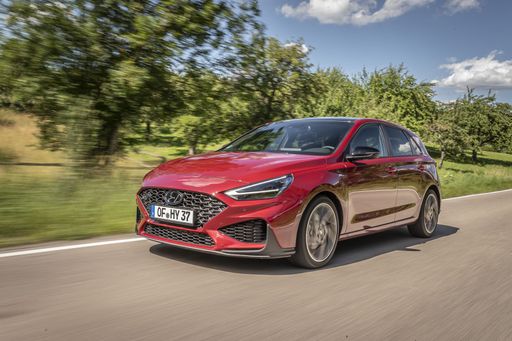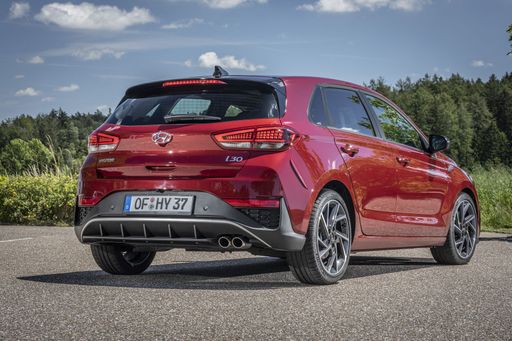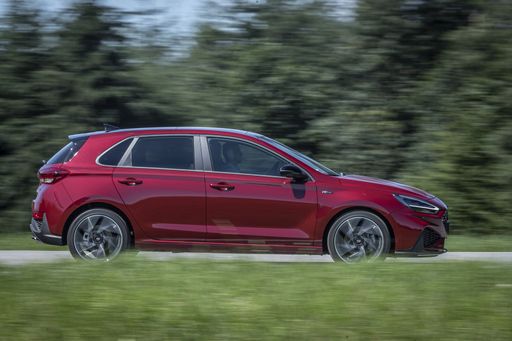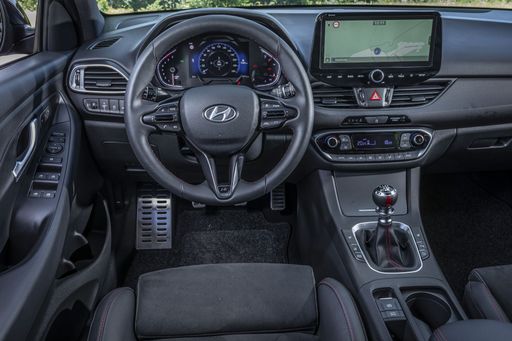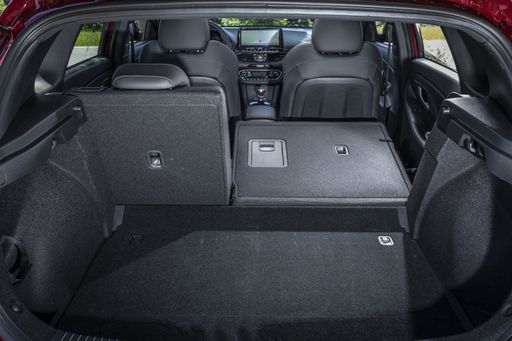Alfa Romeo Giulia vs Hyundai i30 - Differences and prices compared
Compare performance (210 HP vs 140 HP), boot space and price (48000 £ vs 24000 £ ) at a glance. Find out which car is the better choice for you – Alfa Romeo Giulia or Hyundai i30?
Costs and Efficiency:
Price and efficiency are often the first things buyers look at. Here it becomes clear which model has the long-term edge – whether at the pump, the plug, or in purchase price.
Hyundai i30 has a significantly advantage in terms of price – it starts at 24000 £ , while the Alfa Romeo Giulia costs 48000 £ . That’s a price difference of around 24009 £.
Fuel consumption also shows a difference: Alfa Romeo Giulia manages with 5.40 L and is therefore slight more efficient than the Hyundai i30 with 5.70 L. The difference is about 0.30 L per 100 km.
Engine and Performance:
Power, torque and acceleration say a lot about how a car feels on the road. This is where you see which model delivers more driving dynamics.
When it comes to engine power, the Alfa Romeo Giulia has a distinct edge – offering 210 HP compared to 140 HP. That’s roughly 70 HP more horsepower.
In acceleration from 0 to 100 km/h, the Alfa Romeo Giulia is convincingly quicker – completing the sprint in 6.80 s, while the Hyundai i30 takes 9.60 s. That’s about 2.80 s faster.
In terms of top speed, the Alfa Romeo Giulia performs slightly better – reaching 235 km/h, while the Hyundai i30 tops out at 197 km/h. The difference is around 38 km/h.
There’s also a difference in torque: Alfa Romeo Giulia pulls significantly stronger with 470 Nm compared to 253 Nm. That’s about 217 Nm difference.
Space and Everyday Use:
Cabin size, boot volume and payload all play a role in everyday practicality. Here, comfort and flexibility make the difference.
Both vehicles offer seating for 5 people.
In curb weight, Hyundai i30 is distinct lighter – 1291 kg compared to 1640 kg. The difference is around 349 kg.
In terms of boot space, the Alfa Romeo Giulia offers to a small extent more room – 480 L compared to 395 L. That’s a difference of about 85 L.
When it comes to payload, Alfa Romeo Giulia minimal takes the win – 535 kg compared to 509 kg. That’s a difference of about 26 kg.
Who wins the race in the data check?
The Alfa Romeo Giulia holds a decisive overall lead in the objective data comparison.
This result only shows which model scores more points on paper – not which of the two cars feels right for you.
Costs and Consumption
View detailed analysis
Engine and Performance
View detailed analysis
Dimensions and Body
View detailed analysis
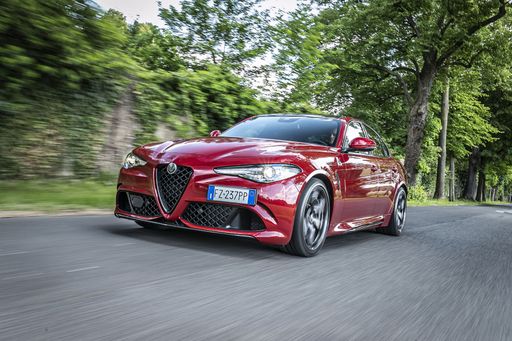
Alfa Romeo Giulia
Alfa Romeo Giulia
The Alfa Romeo Giulia captivates with its stunning Italian design and dynamic performance, representing a perfect blend of elegance and sportiness. Its engaging driving experience, characterised by precise handling and responsive steering, appeals to enthusiasts who crave the thrill of the road. Inside, the Giulia showcases a beautifully crafted interior that combines luxury with cutting-edge technology, making every journey a delight.
details
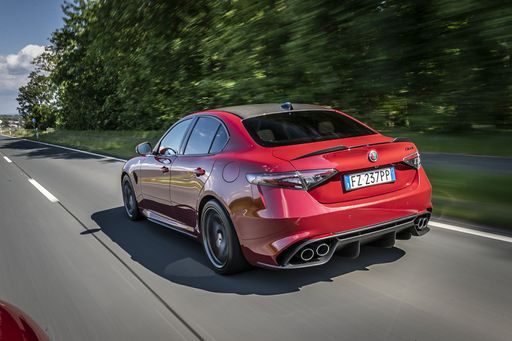
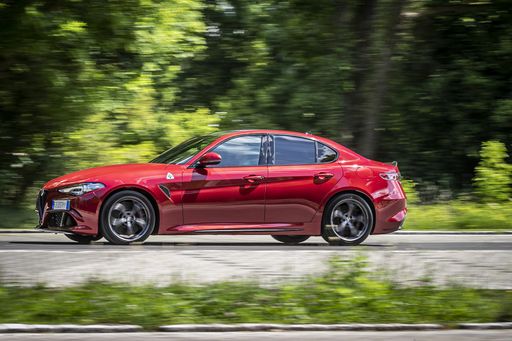
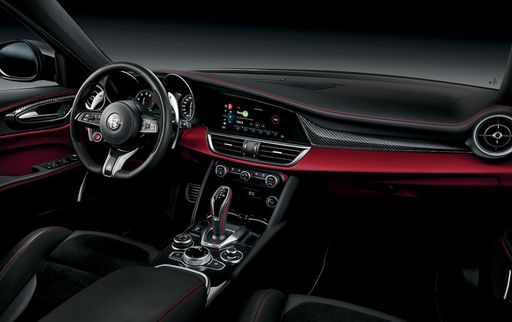
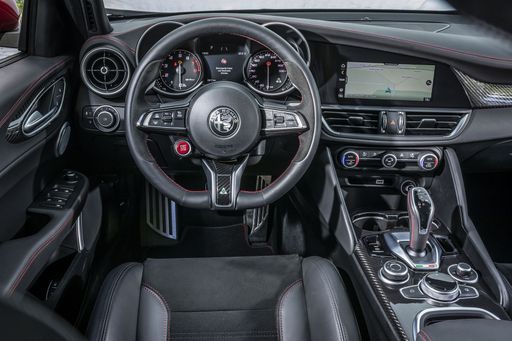
Costs and Consumption |
|
|---|---|
|
Price
48000 - 52700 £
|
Price
24000 - 29300 £
|
|
Consumption L/100km
5.40 L
|
Consumption L/100km
5.7 - 6 L
|
|
Consumption kWh/100km
-
|
Consumption kWh/100km
-
|
|
Electric Range
-
|
Electric Range
-
|
|
Battery Capacity
-
|
Battery Capacity
-
|
|
co2
141 g/km
|
co2
130 - 136 g/km
|
|
Fuel tank capacity
58 L
|
Fuel tank capacity
50 L
|
Dimensions and Body |
|
|---|---|
|
Body Type
Sedan
|
Body Type
Hatchback
|
|
Seats
5
|
Seats
5
|
|
Doors
4
|
Doors
5
|
|
Curb weight
1640 kg
|
Curb weight
1291 - 1407 kg
|
|
Trunk capacity
480 L
|
Trunk capacity
395 L
|
|
Length
4650 mm
|
Length
4340 mm
|
|
Width
1860 mm
|
Width
1795 mm
|
|
Height
1438 mm
|
Height
1455 mm
|
|
Max trunk capacity
-
|
Max trunk capacity
1301 L
|
|
Payload
535 kg
|
Payload
463 - 509 kg
|
Engine and Performance |
|
|---|---|
|
Engine Type
Diesel
|
Engine Type
Petrol, Petrol MHEV
|
|
Transmission
Automatic
|
Transmission
Manuel, Automatic
|
|
Transmission Detail
Automatic Gearbox
|
Transmission Detail
Manual Gearbox, Dual-Clutch Automatic
|
|
Drive Type
All-Wheel Drive
|
Drive Type
Front-Wheel Drive
|
|
Power HP
210 HP
|
Power HP
100 - 140 HP
|
|
Acceleration 0-100km/h
6.80 s
|
Acceleration 0-100km/h
9.6 - 13.1 s
|
|
Max Speed
235 km/h
|
Max Speed
178 - 197 km/h
|
|
Torque
470 Nm
|
Torque
172 - 253 Nm
|
|
Number of Cylinders
4
|
Number of Cylinders
3 - 4
|
|
Power kW
154 kW
|
Power kW
74 - 103 kW
|
|
Engine capacity
2143 cm3
|
Engine capacity
998 - 1482 cm3
|
General |
|
|---|---|
|
Model Year
2024
|
Model Year
2024
|
|
CO2 Efficiency Class
E
|
CO2 Efficiency Class
D, E
|
|
Brand
Alfa Romeo
|
Brand
Hyundai
|
Is the Alfa Romeo Giulia offered with different drivetrains?
Available configurations include All-Wheel Drive.





